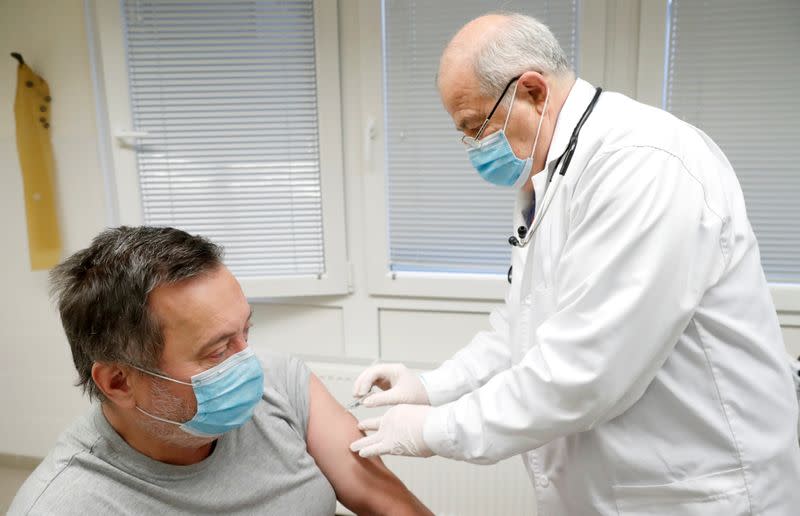Glitch hampers Hungary's vaccination drive as COVID-19 cases rise
BUDAPEST (Reuters) - Hungary said on Friday it would have to delay the vaccination of tens of thousands of people after a bureaucratic glitch disrupted its distribution of AstraZeneca's COVID-19 shot.
Around 74,000 people had been due to get a dose over the weekend but, a government official said, there had been a synchronisation error between public records and a list of those registered for shots.
"We will apologise to them in a text message," Istvan Gyorgy, a state secretary in charge of the government's vaccination working group, told an online press briefing.
The shots would be administered at a later date and plans were still on track to vaccinate 400,000 people over the coming week, he added.
Earlier on Friday, Hungary's Prime Minister Viktor Orban warned that the country could be facing a sharp rise in hospitalisations, up to around 15,000-20,000 from current levels of around 6,800.
"We will see pressure rising on hospitals," he told state radio. "There will be enough (hospital) beds and ventilators," he added.
Orban said tough new lockdown measures announced on Thursday were needed to prevent a "tragedy". The curbs include closing all shops except food stores and pharmacies from Monday until March 22 and closing primary schools.
The prime minister said around 2.4 million people could have had at least one shot of a COVID-19 vaccine by early April, rising to about 4.7 million by early May.
As of Friday, nearly 900,000 Hungarians have received at least the first dose of a vaccine, representing about 9% of the population, Gyorgy told the press briefing.
Since mid-November, Hungary has had a night-time curfew, hotels and restaurants have been closed and remote learning has been in place in all secondary schools.
Last week it became the first European Union country to start inoculating people with China's Sinopharm vaccine after rolling out Russia's Sputnik V vaccine, although neither has been granted approval for emergency use by the bloc.
The Russian and Chinese shots are being administered along with the Pfizer-BioNTech vaccine and shots developed by Moderna and AstraZeneca, all of which have received the EU green light.
(Reporting by Krisztina Than, Anita Komuves and Gergely Szakacs; Editing by Toby Chopra and Andrew Heavens)

 Yahoo Movies
Yahoo Movies 

